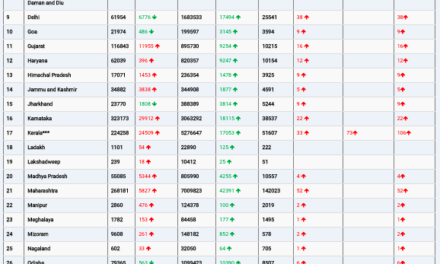A recent study conducted at the University of Florida reveals that people are more likely to trust doctors and scientists, while their faith in public health agencies and social media is considerably lower. The study, which analyzed responses from 5,842 adults in the United States, sheds light on the factors driving this mistrust and explores potential solutions to address it.
Published in the journal Frontiers in Medicine, the study found that an overwhelming 95% of respondents highly trust doctors, and 84% trust scientists. In contrast, only 70% of respondents have faith in government health agencies, and a mere 18% consider social media a reliable source of information.
The research highlights a significant issue: the perception of conflict and constant change in health recommendations from experts leads to lower trust in health information provided by government health agencies. Dr. Arch G. Mainous, the study’s lead author, noted, “Individuals who perceive conflict among experts about health recommendations, and who perceive that recommendations are constantly changing, have significantly lower trust in health information provided by government health agencies.”
This perception of conflicting and evolving recommendations is a major contributor to the public’s mistrust in scientists and health agencies. “Our scientific and medical knowledge is always in flux, leading the public to question the expertise of government health agencies and perceive a political angle when it comes to recommendations,” Mainous explained.
To address this trust gap, the study suggests leveraging the high trust people have in doctors. “Government agencies need to continue to provide patient education but focus more on letting individual physicians disseminate agency recommendations to patients,” Mainous said. By empowering doctors to communicate health guidelines and recommendations directly to patients, the study argues that it could help restore public trust in these crucial health institutions.
The findings underscore the importance of clear and consistent communication in public health, especially in an era where misinformation can spread rapidly through social media. By understanding and addressing the reasons behind public mistrust, health authorities can work towards more effective strategies for conveying critical health information.
This study not only highlights the current trust landscape but also provides actionable insights for improving the public’s confidence in health recommendations, ultimately contributing to better public health outcomes.












